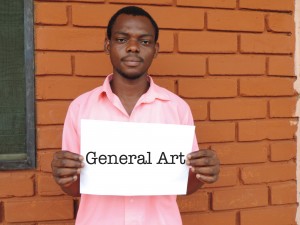Geography studies the inter-relationships of the individual, physical and social environments both in spatial and temporal terms. Geography studies the environment as a system and thus has a vital contribution to make towards solving societal problems and furthering Ghana’s development. At PAGA, the geography curriculum is divided into three sections. The first section covers physical geography, which studies landforms, climate, water, plant and animal life. The second section is on Human and Regional Geography, which is the study of human economic activities within various regions. The final section focuses on Practical Geography and involves the application of skills of map reading, map interpretation, data collection and analysis. The curriculum aims to enable students to effectively utilize their knowledge in geography in order to aid in nation building.
GOVERNMENT
Government is the study of the dynamics of politics, the structure of the state and its institutions and processes. By studying government, students will gain a higher level of political consciousness and civic responsibility. By using the knowledge they will be able to understand and participate actively in the government and politics to be able to influence government decision-making toward promoting the collective well being of society. At PAGA, students will study the basic concepts and the process of the government operations. The subject deals with the past and present political and administrative development in Ghana and West Africa to provide students with requisite knowledge and understandings that will enable them to participate responsibly in the political administration of their country. The curriculum also focuses on Ghana’s political and economical global context and its history of international relations.
ECONOMICS
Economics is a core class that is taken across all disciplines and is taken all four years. In the first year, this course will cover the basic economic concepts as well as focus on students gaining a knowledge of demand and the pattern it follows considering price, quantity demanded and other related factors. Major topics include the concepts of economics, scope of economic activity, tools of economic analysis, factors of production, population, business organizations, economic systems and their functions, unemployment and underemployment and theory of demand. During the second year, students will concentrate on the price theory of supply, prices of factors of production, theory of production, the theory of cost, theory of the firm, how to distribute, and the theory of consumer behavior as well as national income. At the end of this year students would have fair knowledge on things to consider in production. In the third year, more light will be thrown on the concept of national income as well as the concept of economic growth and development, agriculture, industrialization, stability of income and employment, international trade and economic development, economic co-operation, money and banking and public finance. At the end of this year students will have gained knowledge on activities that promote economic development, growth and stability. In the final year, the curriculum is based on economic development planning and contemporary economic issues. At the end of the four-year curriculum students would have acquired the relevant knowledge needed to be deemed proficient in Senior High School economics.
ELECTIVE MATHEMATICS
Elective mathematics at the Senior High School level deals with reasoning by analogies, making judgments through discrimination of values, analysis of data, and communication of one’s thoughts through symbolic expression and graphs.It builds on the Core Mathematics curriculum. It is a requirement as foundation for those who would wish to embark on professional studies in engineering, scientific research, and a number of studies in tertiary and other institutions of higher learning. It covers contents such as Algebra, Coordinate Geometry, Vectors and Mechanics, Logic, Trigonometry, Calculus, Matrices and Transformation, and Statistics and Probability. This course will help students to improve their analytical and critical thinking skills, develop mathematical abilities useful in commerce, trade and public service and make competent use of Information and Computer Technology (ICT) in problem solving and investigation of real life situations.
